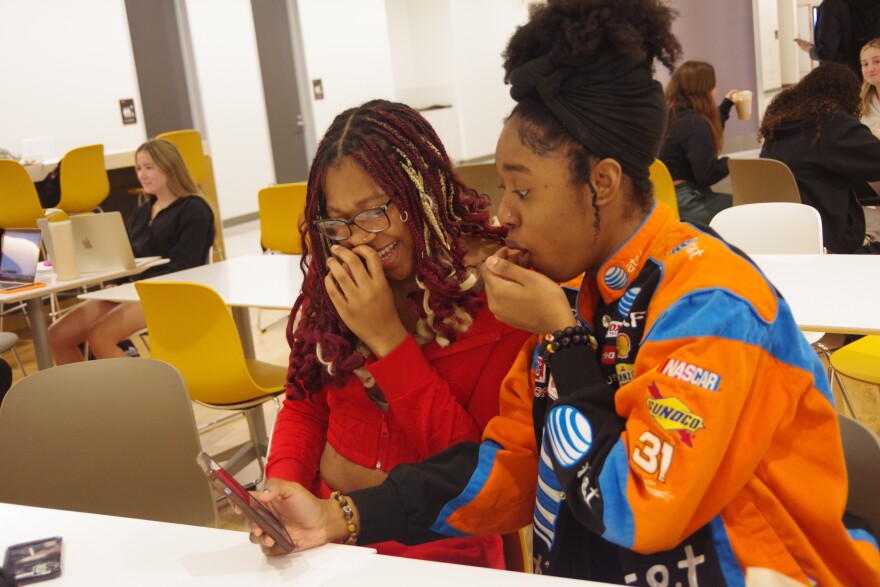Freshman roommates Angelina Opoku-Diawuo and Blessing Nwamgbe said TikTok brought them closer together.
After moving to Western Michigan University's campus, Opoku-Diawuo was scrolling through her camera roll when she found an old TikTok video she’d saved.
“Wow, this looks a lot like my roommate,” Opoku-Diawuo said.
“And I said to her, I said, ‘Girl, this looks so much like you. Is this you?’”
“And I looked at it more. Oh my gosh, this is her. So, I already had a TikTok of her before I even knew her.”
In a bipartisan vote, the U.S. House of Representatives passed a bill Wednesday that brings the Chinese-owned app one step closer to being sold or banned.
But if TikTok is banned, Nwamgbe said the roommates will be okay. That’s because before TikTok there was the Musical.ly app, and before that, there was Vine.
“It would really, like, suck, but I think we could like survive and find a different app to create videos and content,” Nwamgbe said.
Sophomore art student Ben Cable doesn’t like TikTok’s format, but said he has friends who use it to promote their work. He said platforms such as Facebook use similar tactics, so singling out TikTok is hypocritical.
“Other companies do it and they're barely talked about in the news. And yet they have a problem with TikTok because they found a little bit of information that leads to another country.”
Alya Cross said she doesn’t use any social media. But the junior environmental studies major said the bill’s focus on a foreign company misses the point.
“User privacy laws just need to improve overall, as opposed to just targeting the foreign companies,” Cross said.
Sophomore Mac Graham works in the game room at WMU’s Student Center. He said he loves TikTok and doesn’t think the bill will be adopted.
“Banning TikTok, the most popular social media platform for Gen Zers, in the first election year where many of them can vote, just seems like a really bad idea to me.”
Senior Cori Osterman agrees.
“We use it as a way to connect with other people and getting rid of something like that, I think is the wrong move.”
Osterman is the editor in chief of the Western Herald (and a former WMUK news intern). Her master's thesis is on the shortening of Generation Z's attention span. She attributes the shift to short-form media like TikTok. That issue isn’t addressed in the current legislation.
“To quote a TikTok I saw,” Osterman said, "'They are trying to get rid of the complaint box without listening to any of the complaints.' And that really struck a chord with me. So, I think that it's pretty ridiculous, to be honest.”


